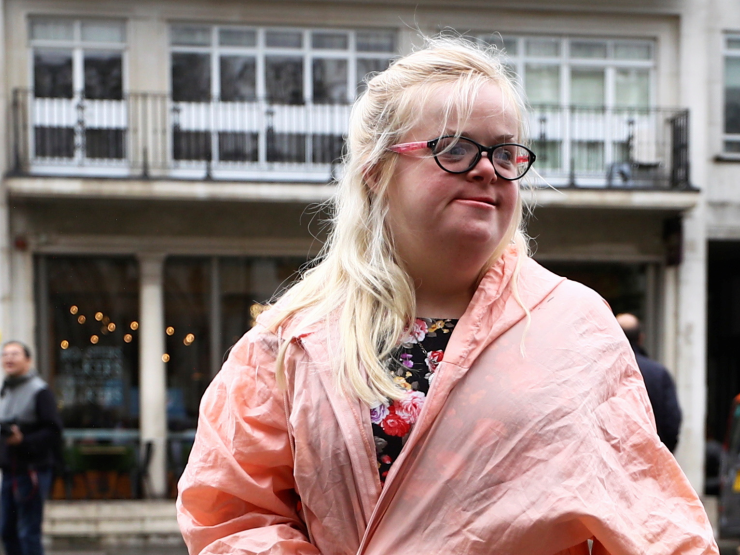Heidi Crowther, the Christian campaigner who is seeking to change the law on abortion in cases of Down's Syndrome and other non-fatal disabilities, has said that she will not give up her fight, just like the Christian anti-slavery campaigner William Wilberforce.
Ms Crowther, who has Down's Syndrome (DS), has said that she and Máire Lea-Wilson, the mother of a child with DS, will take the case to the Court of Appeal.
The High Court ruled on Thursday that a termination could still legally take place up until birth in cases of severe disability, including Down's Syndrome. They concluded that it was a matter for parliament.
Lord Justice Singh and Mrs Justice Lieven acknowledged, having heard evidence, that many parents would "positively wish to have a child" with whatever conditions they were born with.
However, the judges added that not every family would have the same response and that the ability to provide for a disabled child would "vary significantly".
They added that although scientific developments had improved, some conditions would only be found late in a pregnancy, after 24 weeks.
Heidi Crowter, who is 26 and got married last summer, has argued that her human rights once she is born are equal to someone with no disability but that in the womb, she could have been discriminated against by being aborted, despite life expectancy for people with DS increasing significantly in the last 50 years.
She said after the ruling: "I'm really upset not to win, but the fight is not over. The judges might not think it discrimanted against me, the Government might not think it discriminated against me. but - I'm telling you - I do feel discrimanted against."
She added: "When Wilberforce wanted to change the law on slavery, he didn’t give up, even when events didn’t always go his way. And when the going got tough he kept going and I’m going to do the same, because I want to succeed."
Clare Murphy, chief executive of British Pregnancy Advisory Service, who provide abortions, said: "We support today’s High Court verdict. There is no contradiction between a society which champions the rights of disabled people and one which allows women to make difficult decisions in heartbreaking situations.
"The legal challenge, which was dismissed by the High Court today, did not seek to revoke access to abortion care solely in cases of a diagnosis of Down’s Syndrome. The aim of this case was to remove women’s ability to end what are often much-wanted pregnancies post-24 weeks due to diagnoses of any 'non-fatal' foetal anomalies. This would force women to continue pregnancies where there may be multiple complex conditions and outcomes are unclear."
You can read the full judgment here.





